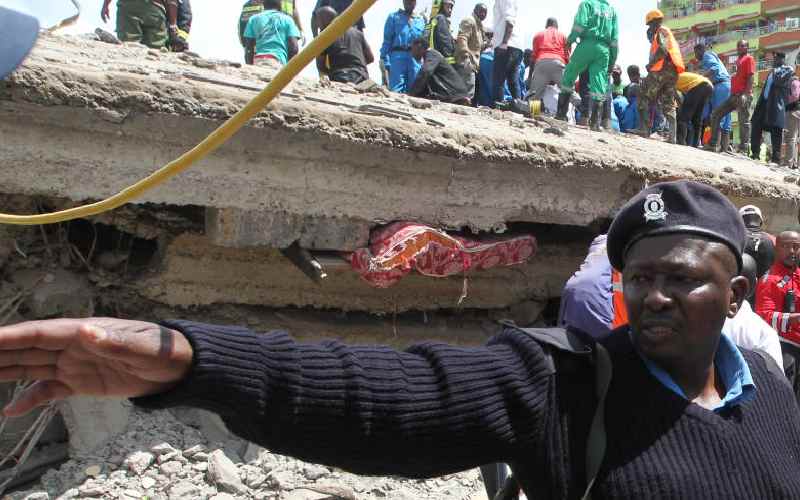×
The Standard e-Paper
Join Thousands Daily

A police officer controls crowd after a six-storey building collapsed collapsed at Tasia in Nairobi’s Embakasi area last year. [Jonah Onyango, Standard]
The National Construction Authority (NCA) is now pushing for legal reforms that will give it prosecutorial powers in a bid to tame rising cases of buildings collapsing in the country.